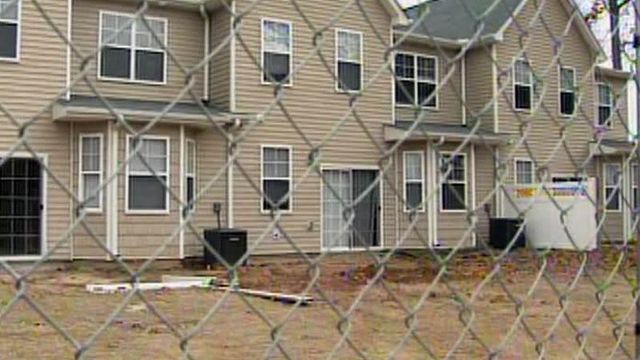Homeowners in three states sue Bragg drywall supplier
National Gypsum, which might have supplied drywall for Fort Bragg housing, is being sued by dozens of homeowners in three states over allegedly defective wallboard that made people sick.
Posted — UpdatedNational Gypsum also might have supplied drywall for military housing on Fort Bragg, where Army officials are investigating the unexplained deaths of 11 children under age 2 since the beginning of 2007.
The class-action lawsuit calls National Gypsum wallboard "inherently defective." Homeowners complained of respiratory problems and corroded, blackened wiring, according to the suit.
"They tested over 300 pieces from one house (involved in the suit), and there is absolutely nothing wrong with our wallboard," National Gypsum spokeswoman Nancy Spurlock said Monday. "You can say anything you want in a lawsuit. That doesn't mean it's true."
Spurlock said Florida water has a high sulfur content, which could be to blame for the foul odor and corrosion.
Nobody at Fort Bragg or with the U.S. Consumer Product Safety Commission would confirm that National Gypsum drywall was used in homes on post, but Spurlock says it probably was.
In October, Fort Bragg officials said results from their own testing ruled out any environmental problems in their homes, including toxic drywall. Results of tests by the Consumer Product Safety Commission are expected back in February.
Three of the dead babies were linked to the same house in the Ardennes neighborhood. Pearline Sculley, whose son, Jayden, was among those three, said Monday that she's convinced defective drywall is to blame for the deaths.
"I don't feel it's just a coincidence that three babies died in the same house," Sculley said.
She said she never noticed the rotten egg smell, but her husband often struggled to breathe.
"He had a lot of respiratory problems during the time we were living there," she said.
• Credits
Copyright 2024 by Capitol Broadcasting Company. All rights reserved. This material may not be published, broadcast, rewritten or redistributed.





